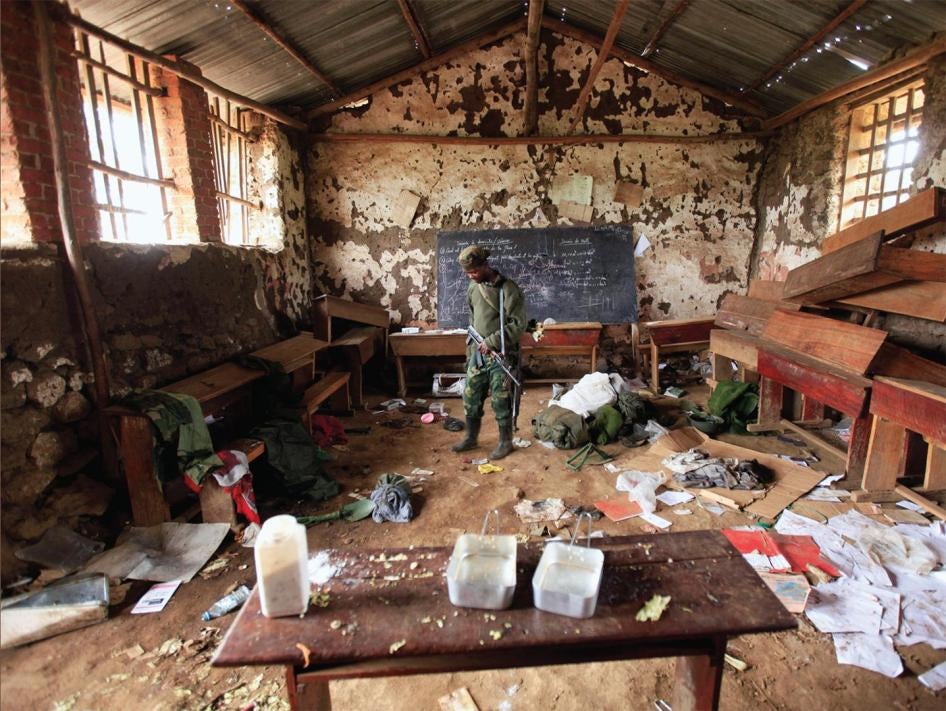“[Fighting] is the only thing we can do, there is nowhere to go to school,” a child soldier in South Sudan told Human Rights Watch. The country’s armed conflict has kept half of all South Sudanese children out of school and shut down 70 percent of schools in the most affected conflict areas. In the boy’s opinion, fighting was better than doing nothing.
According to a new report released by the United Nations Children’s Fund (UNICEF), there are millions of children whose educations are a casualty of war. The report found that nearly 24 million children are missing from school – one in every four children across 22 conflict countries.
War devastates education in many ways. Schools are destroyed or damaged – sometimes in targeted attacks – or shut down because of insecurity. In other cases, schools are ostensibly open, but families are too afraid to send their children. In May, an Afghan woman who had fled to Greece told me, “We saw that there were suicide bombings every day. I didn’t have the courage to send the children to school and had to keep them in the house.” A 16-year-old Afghan boy told me that in his home area, the Taliban didn’t allow children to go to school: “There are schools, but not so many children because people are afraid.”
Military forces and armed groups use schools as recruiting grounds and turn them into barracks and bases. The Global Coalition to Protect Education from Attack has documented how the military use of schools displaces students and, in the worst cases, puts them at risk of attack.
Families know that without schooling, their children’s future prospects are bleak. Many families fleeing war cite lack of education as the reason. The Afghan woman in Greece told me, “That’s the reason we left [Afghanistan]. Because of my children.”
UNICEF warns that without education, a generation of children living in conflict will grow up without the skills they need to contribute to their countries and economies. It also leaves them vulnerable to child recruitment, child marriage, child labor, and other abuses.
Governments should make protection of education in conflict an urgent priority. One way is for countries to join the new Safe Schools Declaration, endorsed by 51 countries, in which they agree to take concrete action to protect students and schools in times of conflict.
Too much is at stake not to act.








